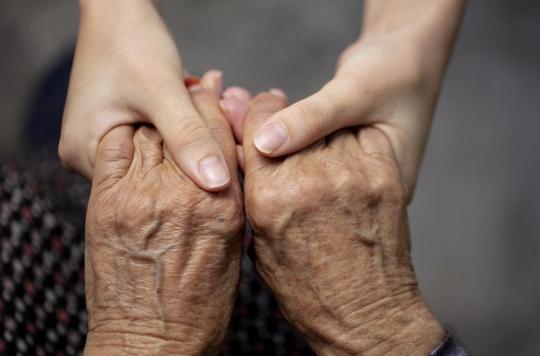It is probably impossible for humans to slow down the rate of aging due to biological constraints. And if life expectancy increases statistically, it is mainly linked to the drop in early mortality

- Biological, rather than environmental, factors would ultimately control longevity.
- Improved health and living conditions have led to an increase in the longevity of the entire population.
- This study suggests a pattern of mortality: a high risk of death during infancy that declines rapidly during the immature and adolescent years and remains low until early adulthood before continuously increasing with age.
Between 1950 and 2008, the life expectancy of the French went from 66 years to 81 years. The result of longer life and reduced aging? Not really according to a study conducted by British researchers from the University of Oxford in collaboration with scientists from 14 countries. Featured June 16 in the magazine NatureCommunicationstheir results suggest that the increase in life expectancy is due to a reduction in early deaths.
Biological factors control longevity
This unprecedented study aimed to test the hypothesis of an “invariant rate of aging” by comparing the statistics of humans and primates. For this, the researchers analyzed data on births and deaths by age, covering several centuries and continents. “Our results support the theory that, rather than slowing death, more people are living much longer due to reduced mortality at younger ages.concluded José Manuel Aburto who is a researcher at the University of Oxford and lead author of the study. We compared data on births and deaths of humans and non-human primates and found that this general pattern of mortality was the same in all. This suggests that biological, rather than environmental, factors ultimately control longevity..”
Improved health and living conditions have led to an increase in the longevity of the entire population. “Nevertheless, a sharp increase in mortality rates, as the years progress into old age, is evident in all species”, note the researchers. These results confirm those of a previous study, also published on May 25 in the journal NatureCommunications, which concluded that humans cannot live beyond 150 years. Beyond that age, we would no longer be physically resilient enough to survive. According to this research, human life expectancy depends on two factors: biological age and resilience.
Medical progress comes up against biological constraints
The team of researchers analyzed data from primates, our closest genetic relatives, and therefore the most likely to shed light on our biology. She reviewed information on 30 species of primates, 17 of which are in the wild and 13 in zoos, including gorillas, baboons, chimpanzees and monkeys. Next, she combed through the birth and death records of nine diverse human populations in 17th- to 20th-century Europe in the Caribbean and Ukraine, and two hunter-gatherer groups between 1900 and 2000.
All of these data revealed the same general pattern of mortality: a high risk of death during infancy that declines rapidly during the immature and adolescent years and remains low until young adulthood before continuously increasing with age. age. “ Our results confirm that in historical populations life expectancy was low because many people died young.noted José Manuel Aburto. But as medical, social and environmental improvements continued, life expectancy increased. However, the trajectory to death in old age has not changed. This study suggests that evolutionary biology trumps everything, and so far medical advances have not been able to overcome these biological constraints.”
.















